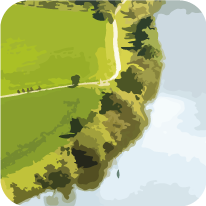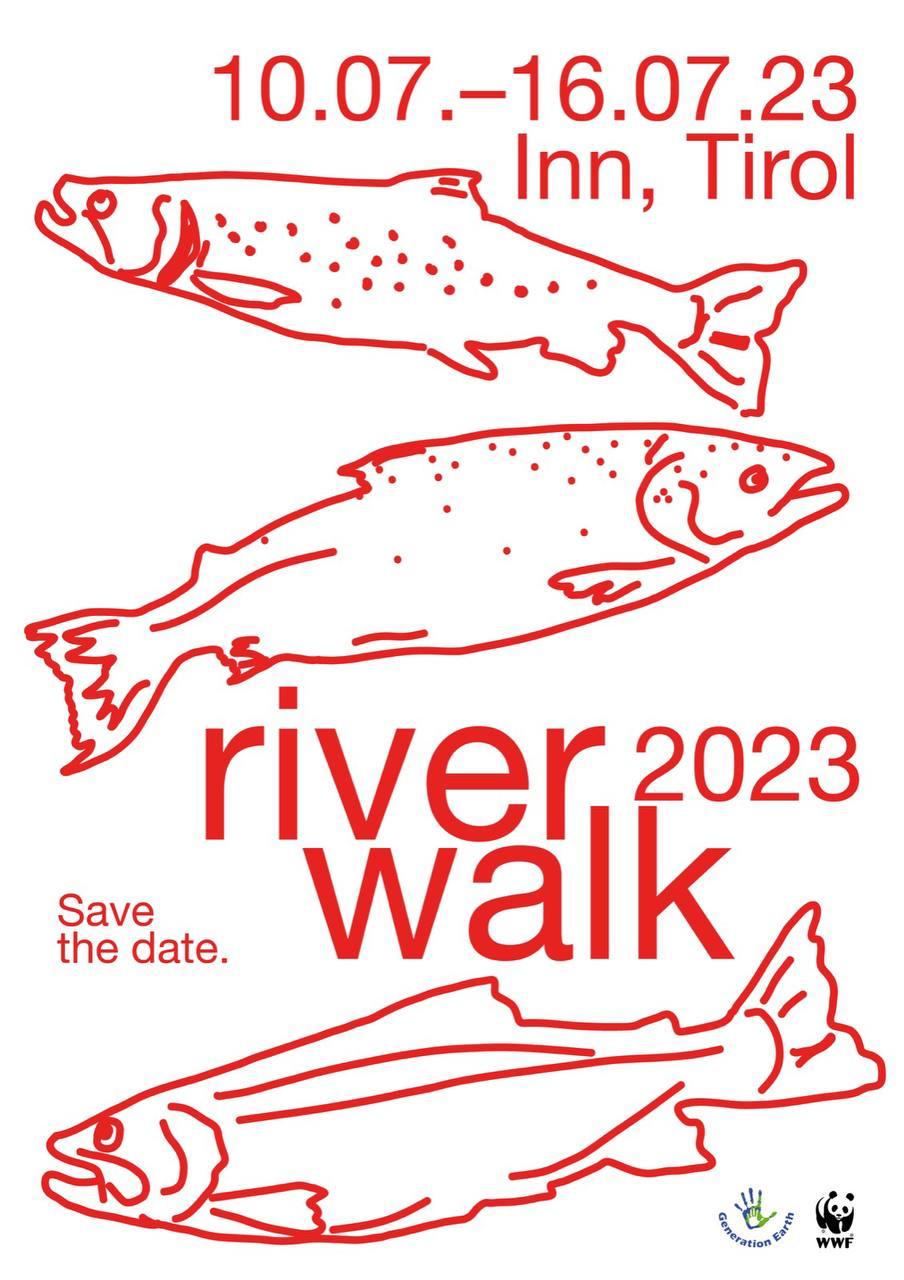After our day of hiking without backpacks we continued our journey from Rosenburg to Gars am Kamp. This day we had only a fairly short walk of 10 km to manage, because at two o’clock in the afternoon Fabio of the Riverwatch team joined us and held a talk about the last free-flowing rivers in Europe. Two journalists and some interested locals joined us as well to discuss the recent developments. Firstly, Fabio explained the natural development of the structure as the river grows and the significance of the possible interactions with the groundwater and the riverbanks. Then, he visualised the dimension in which we build dams in Austria. On average every 900 meters a dam makes it nearly impossible for the river to develop the required habitats for fish and insects to be self-sustaining. He highlighted that his work is mainly focusing on preserving the genetic material of the fauna and flora in the last free-flowing river systems and not about acting against every waterpower plant or dam. Fabio outlined that in Europe more than 80% of the waterpower plants are small ones, which produce in comparison to the big ones, like the Danube power plants, only 3% of the overall gained energy out of waterpower. In conclusion, the final message Fabio brought us was about the removal of several small power plants in the last rivers with longer free-flowing stretches and that they would not even have a noticeable impact on the energy gained out of waterplants. Making the big, impactful power plants more efficient in their performance in order to get rid of fossil fuels as our main source of energy definitely has some potential. However, putting dam after dam into the last precious, free-flowing rivers we have, for sure, does not.
Fabio empowered us with his positive nature and his passion about this topic. We want to thank him again for his visit. After that demanding program, we cooked together and spent the evening playing games, where some Riverwalk members showed off some impressive acting performances. However, the members who have biologists as parents did not make a lot of new friends. In the next morning we had to pick up our borrowed bikes and continued with this new means of transportation to Langenlois. Afterwards, one journalist visited us for some information about the reason of the strange way we decided to spend our holidays. The rest of the day we enjoyed the Kamp in the local bath, some of us visited the Loisianum or embarrassed themselves in volleyball games.
Looking back on our nearly finished journey we will probably enjoy our last evening with one or two well-earned beers and reflect our way together. On which we not only had the possibility to get in touch with the river and the political issue of the Rosenburg powerplant, but also to experience the 24/7 life in a group and to develop our personalities along the way. I think I can speak for the whole Riverwalk group when I say, we are extremely thankful to the WWF and Tim Pauli for making this remarkable experience possible!


